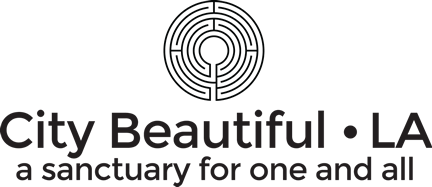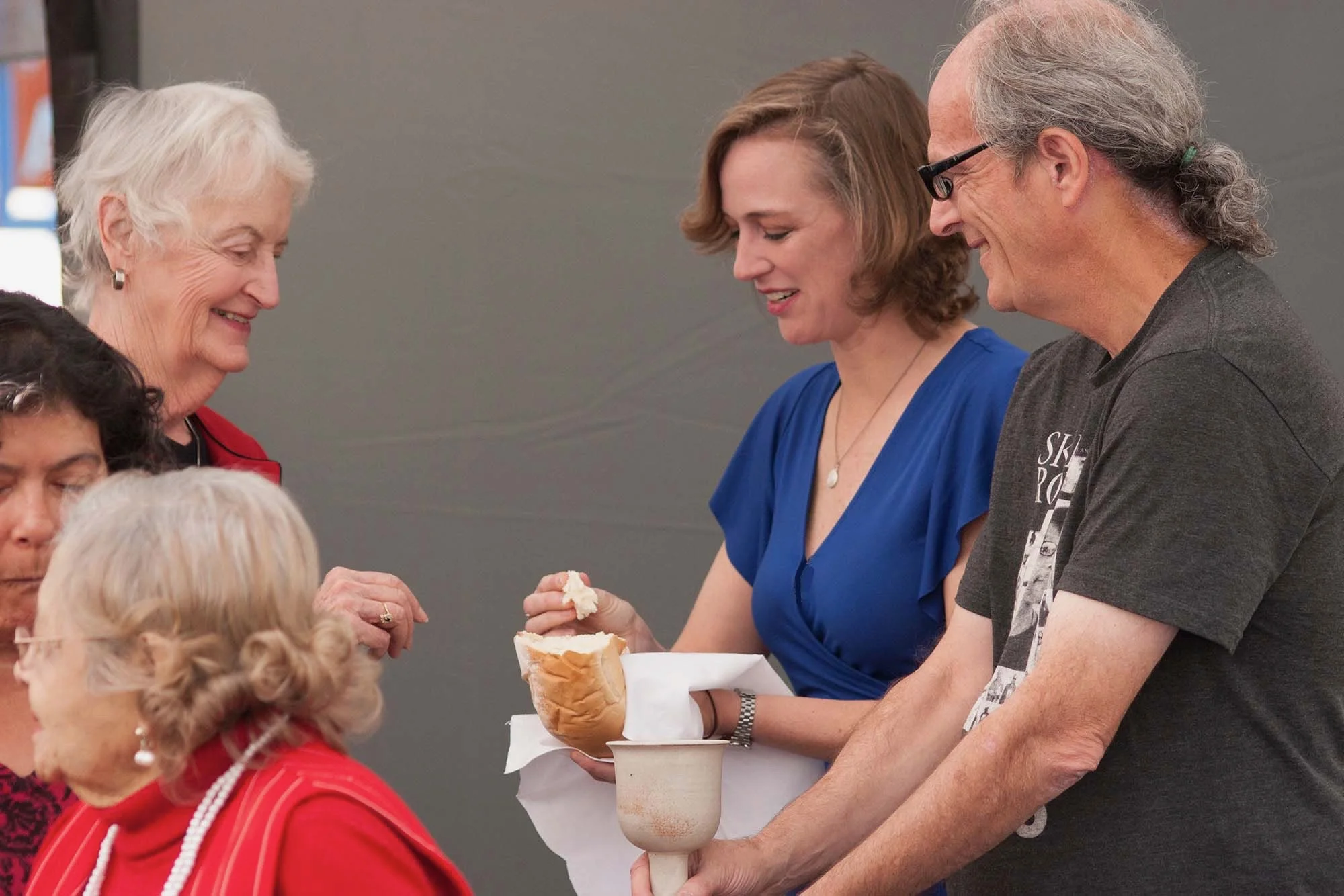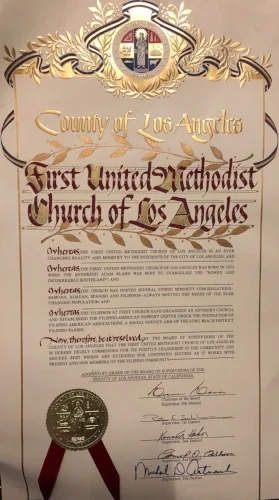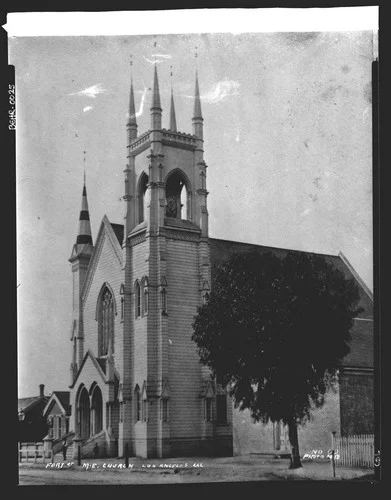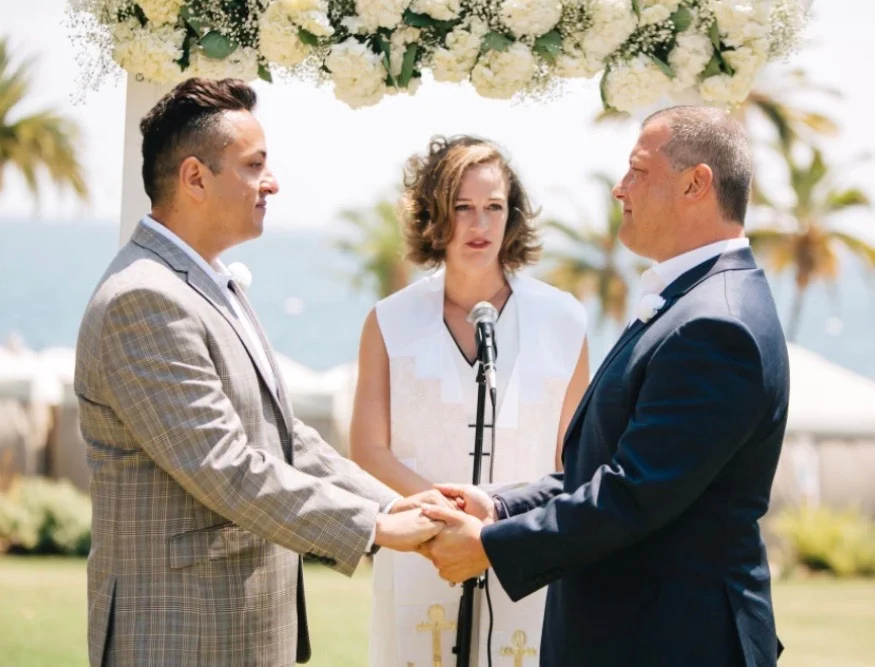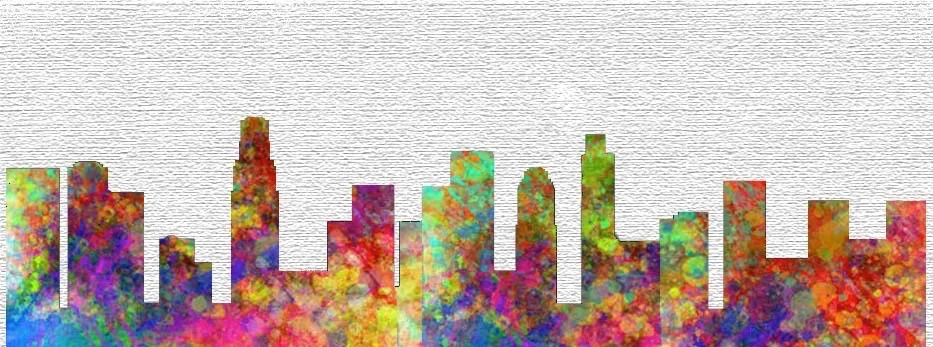A Church Without A Home
We are a church with a long, rich history. Founded in the El Dorado Saloon in Los Angeles in 1853, First Methodist Episcopal Church was a partner with Biddy Mason in the fight for emancipation and integration.
The church swelled to 6000 members in the 1900s, but fell on hard times as Downtown LA's residents moved to the rapidly-developing suburbs. The church moved from its historic site on 8th and Hope Street to our current location.
In the late 1990s, it was clear the building was not serving the needs of the congregation. A courageous choice was made to tear it down, and invest in the most critical need of the community: housing.
Since then, First United Methodist Church of Los Angeles remains a church without a home. We own the parking lot at the corner of Flower and Olympic, which is where we meet for worship.
We remain a church without walls, without borders, without barriers. This reflects our theological openness, and the way we believe God's love should be experienced and shared.
